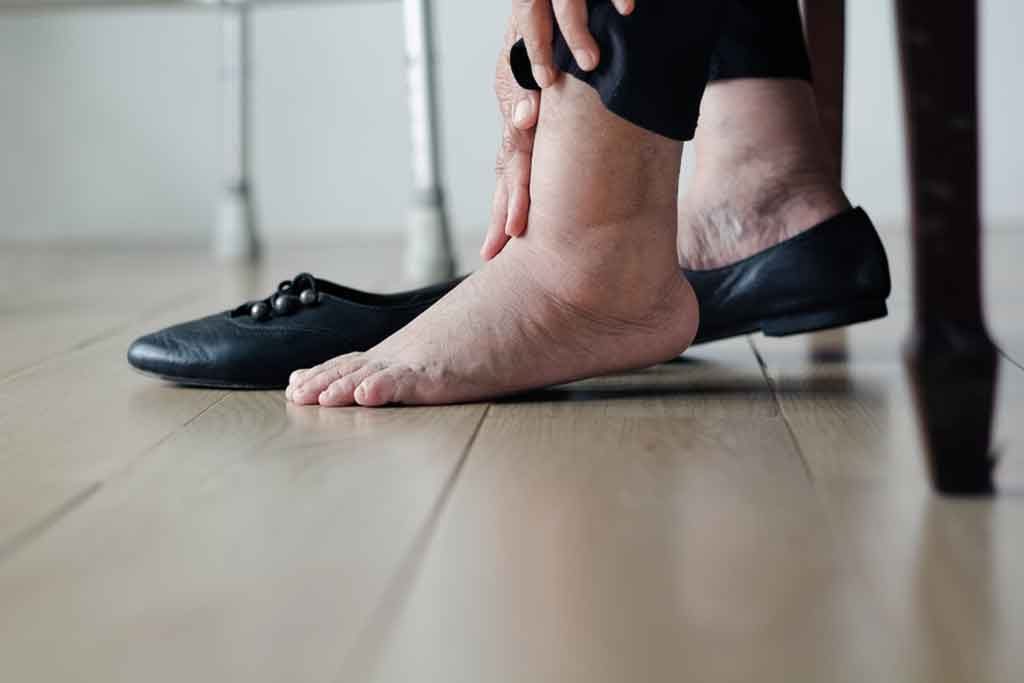Muscles Not Working Like They Once Did? Might Be Motor Nerve Damage
Symptoms of peripheral neuropathy can show up in a variety of different ways. Most often, this is directly related to what type of nerve is being impacted. Motor nerve damage has its own set of unique symptoms.
You’ve got to hand it to the nervous system — it’s got a lot on its plate. Not only does it regulate just about everything your body feels and experiences, but it’s also in charge of the things you don’t even consciously think about. And it doesn’t stop there. Your nervous system also controls all the movements your body executes, from the large scale to the small. This means everything from climbing the stairs in your house to moving your finger to click on the link to this very article.
Your motor nerves are in charge of quite a lot and need to carry a heavy informational load in order to effectively do so. This means that your motor nerves tend to be thicker than others. They’re covered with something called the myelin sheath, which is protective and helps them conduct information quickly. However, this myelin sheath is also susceptible to damage.
Different Nerves Cause Different Symptoms
Talk to any number of different people with peripheral neuropathy, and you’re more than likely to hear about them experiencing a pretty vast and varied number of symptoms. This can be pretty confusing at first, but the fog lifts as soon as you consider how much the nervous system is responsible for. In short? It’s responsible for everything.
Depending on what part of your nervous system is under attack, then, the symptoms of peripheral neuropathy can show up in any number of different ways. Similarly, symptoms will vary depending on nerve thickness as well — while thinner nerves have a tendency to misfire and overreact in response to damage, thicker ones just shut down entirely.
Unfortunately, your motor nerves are usually among the thickest nerves and therefore susceptible to a shutdown.
Cease All Motor Function
Your motor nerves are pretty tough. Since they carry a heavy informational load, they’re usually covered with a healthy wrap of myelin sheath. This makes them pretty resilient, so they’re more likely to put up a valiant fight against nerve damage.
While they’re usually among the last symptoms to show up to the party, they can also be among the most difficult to deal with daily.
Motor neuron shutdown essentially means that you lose the ability to move your muscles. But this doesn’t really stop simply at the loss of your ability to move your hand, for example. This can create symptoms of many varieties, from subtle to serious.
Some of the first indications that motor neuropathy has begun to set in can be seen in the hands and feet. Peripheral neuropathy is length-based in the way it shows its symptoms — so the nerve endings in your hands and your feet will usually be the first to show damage.
Small problems like a loss of fine motor control are typically among the first symptoms to be noticed. Maybe it’s a bit harder to make it up the stairs without knocking your toes against them as you climb. Perhaps you’ve noticed that your penmanship has gotten a little sloppy…or even that you’re having a tough time picking up that pen in the first place.
These symptoms tend to start small. Maybe a simple activity becomes irritatingly difficult. But it doesn’t stop there. As motor symptoms progress, not only do they get more severe, but the damage spreads, traveling towards the center of your body. Loss of motor control in fingers and toes is the first to go, but eventually, loss of muscle control in legs and arms becomes evident in progressed stages.
Focal Compression Neuropathy

One of the most common types of motor nerve damage is called focal compression neuropathy. This refers to nerve damage that has been caused by a nerve being compressed. The “focal” part of the name means that this damage is focused in one specific place in the body.
Carpal tunnel syndrome is one of the most commonly reported types of focal compression neuropathy, arising from a condition in which a motor nerve that runs through the wrist has become compressed due to improper wrist positioning during repeated activity. Over time, if the compression gets bad enough and for long enough, the nerves will become damaged.
Muscle Atrophy with Motor Nerve Damage

Motor nerve damage doesn’t always stop at trouble in the movement department. One of the most worrisome things about peripheral neuropathy is that it can lead to what we describe as cascading symptoms — one symptom can lead to another problem, which leads to another, and so forth. Often with increasing levels of seriousness.
One of the instances we can observe cascading symptoms is when motor neuropathy causes muscle atrophy in patients with peripheral neuropathy.
Your nerves, as they go about telling your muscles when to move, are actively keeping those muscles healthy as they do so. When the motor nerves in your body shut down and stop sending this information to your muscles, this lack of use eventually causes the muscles to weaken. Sometimes they can even wind up shrinking. While reversible (with exercise, and physical therapy in some cases), muscle atrophy is almost never easy to deal with.
As your muscles begin to weaken, and the weakness progresses, the signs and symptoms will start out predictably enough. Weakness and loss of muscle control are typically the first to show up. Cramping will typically follow, and not long after might come involuntary movements like contractions, twitches, or other irritating motions. Finally, your feet and hands can even begin to disfigure, as the muscles that help them keep their shape wither and weaken.
Risk of Edema with Motor Nerve Damage

One of the most surprising cascading symptoms that can come from motor neuropathy is the risk for something known as edema, or swelling. Your motor nerves, as it turns out, aren’t only responsible for moving the muscles in your body. They also help out with your circulation.
Gravity never really stops doing its thing, so it’s always working to pull the blood into the lower parts of your body. Your motor nerves help your leg muscles work against this force, pumping your blood up and out to the rest of your body so that it doesn’t pool and collect in your legs (edema).
Motor Symptoms Can Be Formidable
As you can see, all those motor neurons running through your body aren’t only responsible for helping you move. That’s their job, but they’re responsible for a whole lot more, so when motor nerves are damaged, it can be a pretty big deal. From problems with movement to issues with circulation and beyond, motor nerve damage symptoms of the peripheral nervous system are often among the most aggravating and persistent at putting a damper on your daily routine.
Having a clear understanding of neuropathy symptoms is one of the best ways to begin your journey to discover whether or not you might be dealing with motor nerve damage and what you can do to take control of it. If you are experiencing some of these motor nerve damage symptoms, you may want to go see your doctor to confirm the cause — which is important for causes that can be addressed. For those who already have a motor neuropathy diagnosis with or without a known cause, healthy lifestyle changes may help to prevent progression, lessen symptoms, and promote healing. A nerve nutrient-dense anti-inflammatory diet, detoxification, and therapies that stimulate your body’s repair systems can go a long way in lessening the burden of motor nerve damage symptoms of peripheral neuropathy.
Beware of These Foods That Flare

One of the biggest contributors to the onset of peripheral neuropathy is body toxicity. Your…
66% of Chronic Drinkers Have Alcoholic Neuropathy

Chronic alcohol consumption is a contributing factor in a high number of peripheral neuropathy cases.…
Surprising Autonomic Symptoms of Neuropathy

Neuropathy symptoms are determined by what specific type of nerve has been damaged. Autonomic neuropathy…
Mayo Clinic Reports That Some Heavy Metals Cause Peripheral Neuropathy

Heavy metals are used in many places throughout the world, but they’re not intended to…